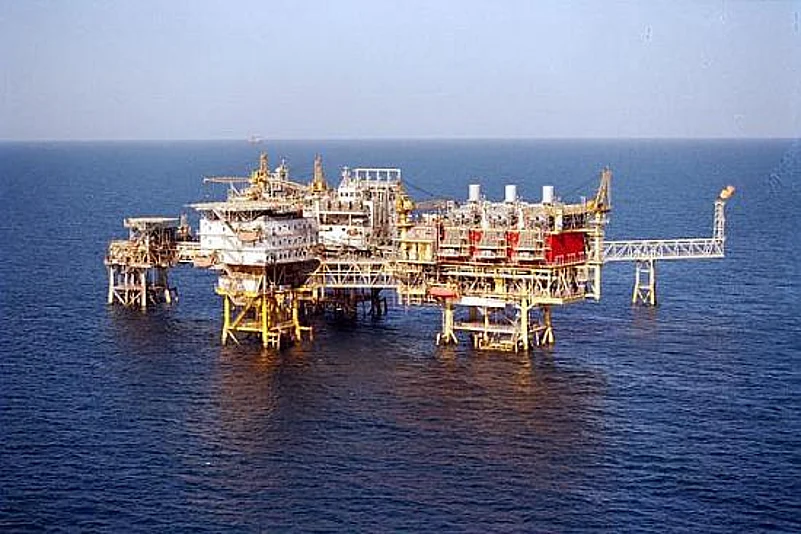The central government has announced its "new" exploration policy under which several small and marginal fields will be auctioned for development by private sector (not new), with freedom for them to sell the produce at market prices and to consumers of their choice (not new either). But the new things they have added is that all of them would be under a new uniform licensing policy and further the principle of production/profit sharing in vogue so far will be replaced by a regime of revenue sharing.
While the uniform licensing policy, whatever it is, is a welcome development, revenue sharing needs a closer look, on its implications and impact on the country's resources.
The process of awarding these new blocks is to commence by March 2016. The stages would be — notice inviting bids, bidding, their evaluation, selection of bidder, contract negotiations and award, handing over possession of the fields, new investments, and its fruits will not start arriving before 2019 elections.
A quicker mode of deriving the benefit of the new uniform licensing is to extend them immediately to existing fields with private operators, some of whom are sitting on discovered shale sands, etc., awaiting the new policy. This would quicken monetisation right away. It would get a further fillip if the outstanding problems, including extension of contracts of small fields already with private operators, are addressed immediately.
The contracts of the first lot of fields similarly offered in the wake of opening up of the sector in early nineties are completing their 25-year cycle of life and are seeking renewal under the provisions of the contract. Some of them are embroiled in unresolved tax disputes, involving costly and prolonged litigation, with the government showing no inclination to resolve them once for all and make things easier for carrying on business. Also, a number of fields sitting on shale sands are waiting for the policy to be extended to them so that they can monetise those discoveries right away.
But government is seeking revised terms for extension, asking for more, leading to delays in the investor taking a view on further investments to be made for the extended period. While some are seeking extension for the 10 years allowed in the contract, a few others are seeking another cycle of 25 years, on account reserve accretions made by them so far.
Revision of terms of existing contracts involves negotiations with that singe contractor, and if finalised without reverse auction, it could lead to objections from CAG, etc.
Extension on existing terms should be a safe option for quick decision on further investments by the contractors and quicker returns for government apart from easing ways of doing business.
On revenue sharing, it is interesting to note that in a recent advertisement and statement, a leading player in oil and gas has clearly articulated what they are looking for in these investments. Whatever the regime, profit sharing or revenue sharing, what the investor looks for is decent rate of return on his investment. None can quarrel with that. Investor has stated what his bottom line is in such investments.
So what is or what ought to be the bottom line of government as owner of the scarce natural resources, in exploiting oil/gas? Unlike solid minerals, oil/gas deposits involve manipulation of natural geological pressure to coax the reservoir to yield the maximum oil/ gas that is recoverable.
If the reservoir is not properly managed, oil/gas otherwise recoverable will be irretrievably lost forever. In other words, government's aim should be to maximise this ultimate recovery, in the nation's interest. And this is where the revenue sharing model fails to ensure ultimate recovery.
There is an inbuilt conflict in maximising revenue and maximising recovery. Revenue can be maximised without achieving ultimate recovery. Any investor, required to earn a reasonable rate of return, and also to win the bid, will present a development model that maximises revenue and its sharing with government, which also regrettably is aligning its interest with that of the contractor instead of aiming for ultimate recovery.
Maximising recovery involves employment of enhanced recovery methods that have a negative impact on revenues and so the investor is actually disincentivised for higher recovery. If government is also looking at higher revenues, as is apparent from what has been announced so far, the country will be a loser with sub-optimal recoveries being the norm, leaving scarce resource irretrievably lost in the ground and this is against the nation's interest.
Over the ground problems should not be sought to be solved by sacrificing under the ground interests of the country. A modicum of oversight on reservoir management is necessary to ensure its continuing health, adoption of best practices, avoiding flogging, etc., in times of price volatility.
If for doctrinaire reasons the government still wants to follow the regressive revenue sharing model, revenue sharing bids should be subject to achieving ultimate recovery. Otherwise, the paradigm shift claimed will not be to revenue sharing from production sharing. Instead, the shift will be to greed sharing along with the investor, at the cost of the nation's resource.
T.N.R. Rao is ?former petroleum secretary.






















